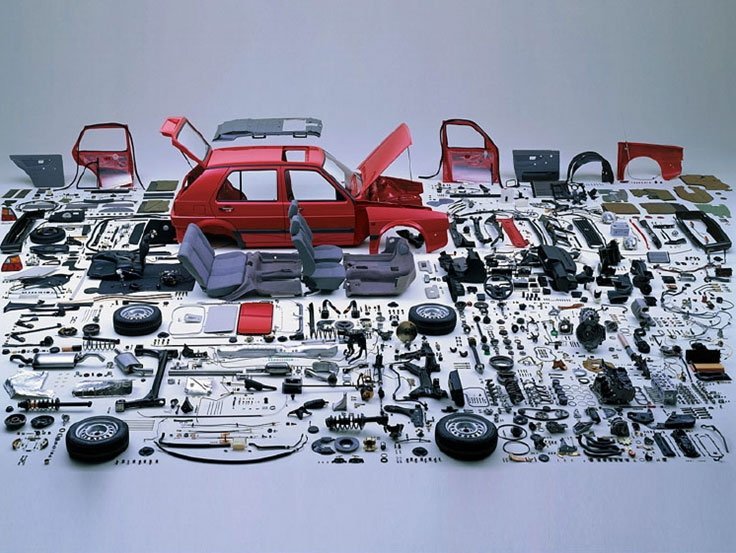Go big or go home: Supplier mergers accelerate

It's a banner year for mergers and acquisitions.
In the first six months, the world's automotive suppliers have spent $28 billion to buy other companies -- more than in all of last year, when M&A deals totaled $20 billion, according to AlixPartners, a New York consulting firm that specializes in corporate turnarounds.
If the dealmaking continues at its current pace, the auto industry may approach or top the $45 billion in M&A activity achieved in 2011.
"This looks like a big year already," said Mark Wakefield, managing director of AlixPartners. Corporate CEOs "feel like they've done enough housecleaning, and now they want to look around and be strategic."
Two factors are driving the trend: inexpensive financing and automakers' transition to global platforms, which has pressured suppliers to beef up their most profitable divisions.
Some recent deals:
- n July, BorgWarner agreed to buy Remy International Inc. for $951 million. Remy's alternators, starters and hybrid motors will expand BorgWarner's portfolio of powertrain components.
- In February, Mahle GmbH struck a deal to acquire Delphi's thermal division for $727 million. The acquisition elevates Mahle into the top ranks of that product segment.
- In April, Spain's Grupo Antolin agreed to purchase Magna International's interiors unit for $525 million.
- In January, Harman International said it would acquire two software suppliers -- Red Bend Software and Symphony Teleca -- for a combined $950 million.
| Global M&A activity is expected this year to hit the highest level since 2011, based on deals announced in the first 6 months. | ||||
| Deals, in billions | Deals, in billions | |||
| 2009 | $46* | 2013 | $22 | |
| 2010 | $25 | 2014 | $20 | |
| 2011 | $45 | 2015 | $28 | |
| 2012 | $30 | |||
| *Does not include U.S. bailout of GM, Chrysler | ||||
| **Acquisitions for first 6 months | ||||
| Source: AlixPartners | ||||
Cheap money
Perhaps the most important factor fueling M&A activity is cheap money, Wakefield said. With low interest rates, buyers can easily line up credit for an acquisition. ZF Friedrichshafen AG's deal last year to acquire TRW Automotive for $13.5 billion was an eye-opener for the industry.
"The TRW deal was pretty extraordinary, in terms of the debt that ZF took on," Wakefield said. "There aren't a lot of impediments on the finance side."
Second, as automakers introduce global platforms, suppliers feel pressure to beef up their most promising operations. And if a division seems likely to remain an also-ran, some suppliers don't hesitate to dump it.
In many deals, the assumption is that a supplier must strive to be No. 1 in its segment -- or at least No. 2. And if that seems unlikely, suppliers are increasingly eager to bail out.
That drive to be big was a major factor behind Mahle's acquisition of Delphi Thermal. Two years ago, Mahle became a player in thermal systems when it acquired a majority stake in Behr Group. Now, Mahle is positioned to challenge industry leaders such as Denso Corp., Halla Climate Control and Valeo.
Size also was a motive for Grupo Antolin, which agreed to acquire Magna's interior trim unit in a bid to consolidate that market. The Spanish supplier is battling Yanfeng Automotive Trim Systems Co., which last year formed a joint venture to acquire a 70 percent stake in Johnson Controls' interior trim unit.
Third, suppliers are eager to obtain technologies that automakers value highly because they improve fuel economy, provide connectivity or enable active safety. For example, the TRW acquisition gave ZF the ability to design collision avoidance systems for autonomous vehicles.
Likewise, BorgWarner's acquisition of Remy will help it supply automakers that need fuel-saving stop-start systems. And Harman's software acquisitions will enable it to make over-the-air improvements to infotainment systems.
More deals coming?
Has the M&A market peaked? Peter Smidt, a managing director of consultant Conway Mackenzie, says he expects dealmaking to remain robust, although private equity firms looking to flip distressed suppliers won't find many bargains.
But Wall Street investors haven't been shut out of the automotive M&A market. In June, for example, Bain Capital completed its acquisition of TI Automotive, the suburban Detroit maker of fuel systems and tanks, for an estimated $2.4 billion.
Wakefield of AlixPartners says he wouldn't be surprised to see even more deals in 2016. In recent months, companies such as Dana Corp., Delphi Automotive and TI Automotive have announced their willingness to make acquisitions. Meanwhile, Johnson Controls in July said it will spin off its seating and interiors units.
So there are buyers with cash and companies with something to sell. But the U.S. Federal Reserve is poised to raise interest rates this year.
"Interest rates would be a real big complication," Wakefield said. "If interest rates go up, the deals become more expensive. The clock is ticking."
Nouvelles connexes


